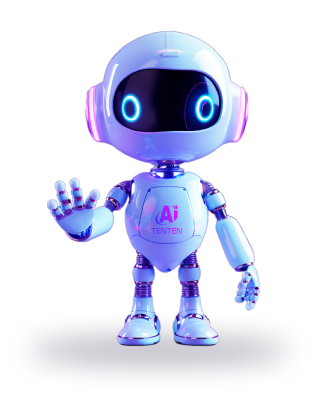-
Vie
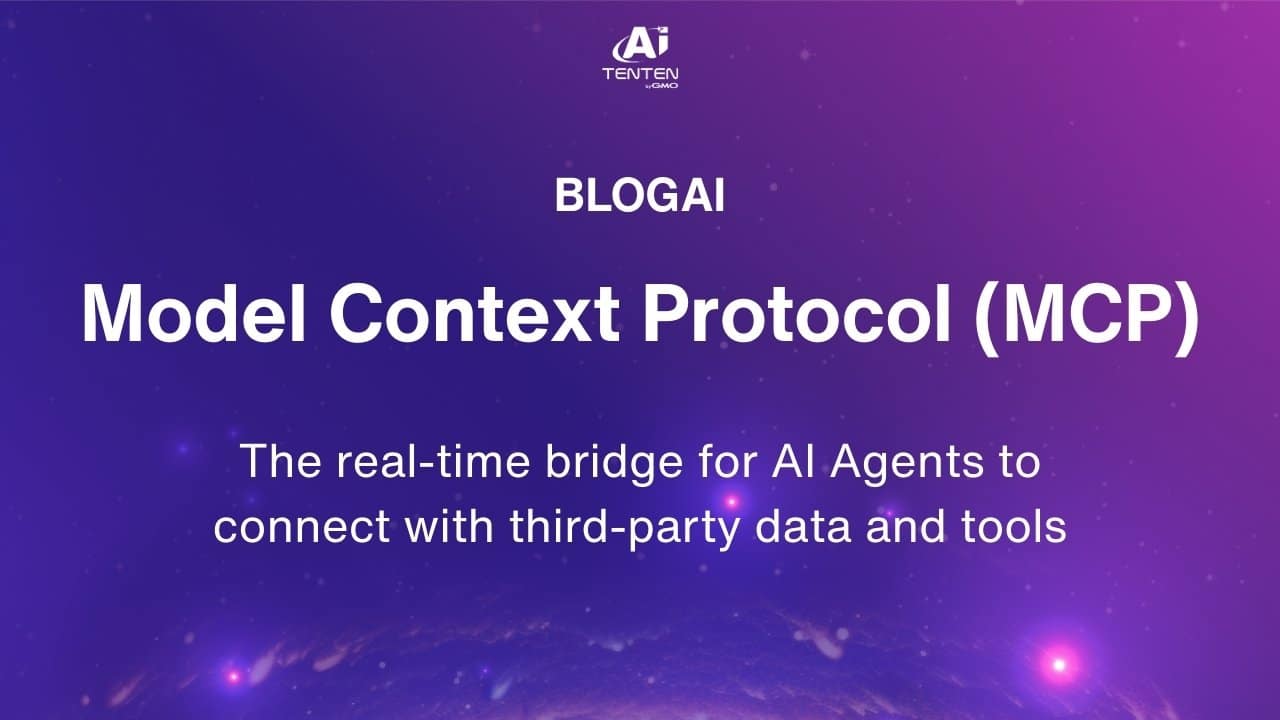
Table Of Contents
As more businesses and individuals leverage AI to streamline their work, a key challenge persists: AI struggles to connect with third-party data sources and tools. This limitation often confines even the most advanced AI to answering simple questions. Enter MCP—Model Context Protocol—a solution designed to tackle this very issue. Join Tentenai.vn as we explore the concept, capabilities, and applications of MCP in building AI Agents.
Model Context Protocol (MCP) is an open-source standard developed by Anthropic. At its core, MCP is straightforward: it enables AI to connect effortlessly with tools, services, and data.
Think of MCP as a “universal language” for AI, allowing it to interact with various tools and services without complex integrations.
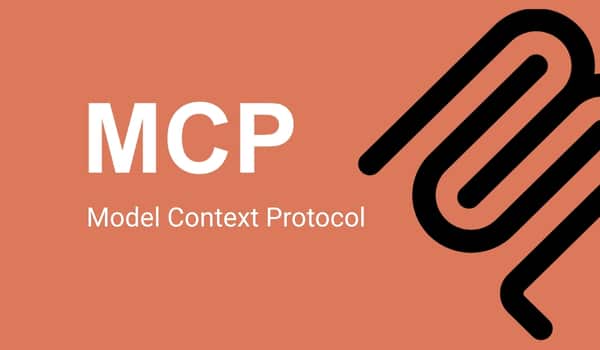
With MCP, AI can go beyond answering questions to performing tasks like searching for information, summarizing documents, or saving files—tasks that previously required developers to build custom APIs. MCP simplifies this process significantly.
Before MCP, users had to manually input all relevant data into each AI prompt, which was problematic for large or complex datasets and often exceeded length limits.
To enable AI to use external tools, such as search engines or databases, developers had to write custom code to connect each API. This was time-consuming, error-prone, and lacked a standardized approach for scalability.
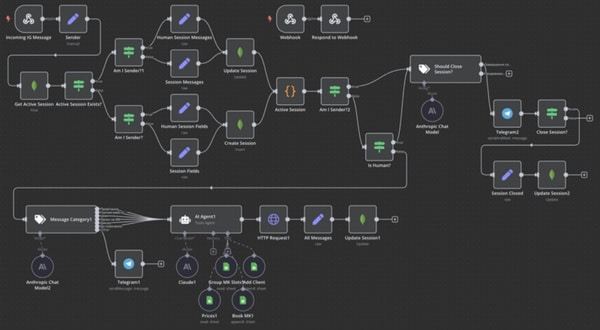
n8n AI Agent Model Before MCP
Some systems used Retrieval-Augmented Generation (RAG) to fetch additional data, but this was limited to passive information retrieval, not active interaction or task execution.
Libraries like LangChain or AutoGPT allowed AI to call tools, but they required manual integration, and AI couldn’t independently discover or use new tools or services.
This is where MCP comes in, offering a simpler, more scalable way for AI to connect with diverse tools and services.
MCP’s ecosystem consists of three main components: MCP Host, MCP Server, and MCP Client.
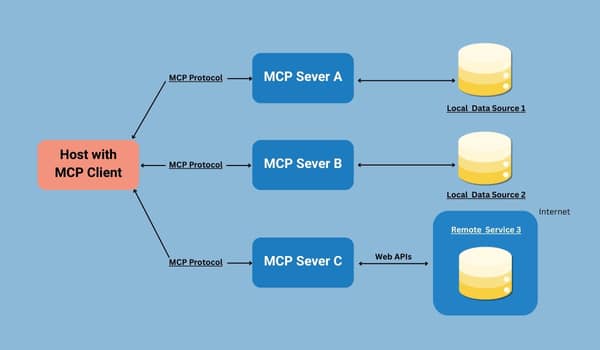
How MCP works
MCP serves as a bridge, allowing AI (like Claude) to connect and interact with various data sources, such as internal databases, Google Drive, GitHub, Slack, or Notion. Its client-server architecture enables AI to send requests to MCP Servers, retrieving real-time information or performing actions on these platforms quickly.
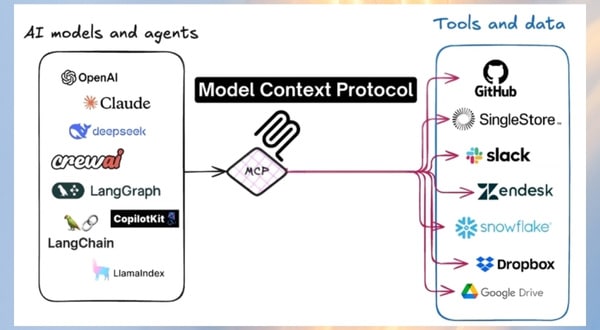
MCP acts as a versatile “translator,” enabling AI to call functions and perform actions across different systems and tools. For example, AI can retrieve data from a database, commit code to GitHub, search documents on Google Drive, or send Slack messages—all without manual API integrations for each tool.
Built on a client-server model, MCP ensures every connection is explicitly authorized. Users or organizations can tightly control which data sources the AI can access and with what permissions, safeguarding sensitive data and ensuring AI only performs permitted tasks.
MCP is highly extensible, with SDKs supporting multiple programming languages like Python, TypeScript, and Java, making it easy for developers to integrate into AI systems. Notably, MCP prioritizes local deployment, allowing AI to process data on personal devices or internal networks for privacy and security, while still supporting remote connections when needed.
Here’s an example workflow from YouTuber Vincent Do | AI & Automation, who applied MCP to an AI Agent Chat for handling Airbnb room searches.
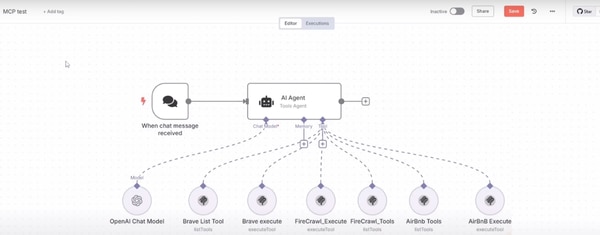
When a user requests a search for accommodations in Da Lat, the Agent doesn’t rely solely on one AI model. Instead, it dynamically uses tools like ChatGPT, AirBnBTools, and AirBnB Executive to process the request. Thanks to MCP, these tools are connected in real-time, allowing the Agent to fetch data directly from Airbnb and provide a list of suitable rooms.

The result is a curated list of accommodations from Airbnb matching the user’s criteria. Users can also add other platforms (e.g., Booking.com, Agoda) to the workflow without rewriting the entire process, and the Agent will return results from Airbnb, Booking.com, Agoda, and more.
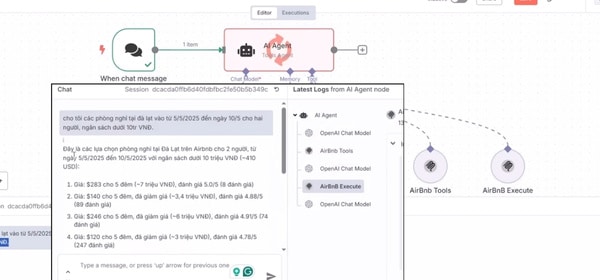
MCP also enables the Agent to perform additional actions, such as generating a consolidated Airbnb link containing the recommended rooms—a task that previously required manual coding and individual API integrations.
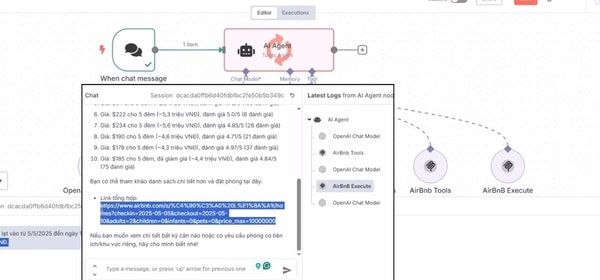
With its standardized framework, MCP ensures AI Agents operate smoothly, interacting with multiple tools simultaneously to deliver accurate, fast results.



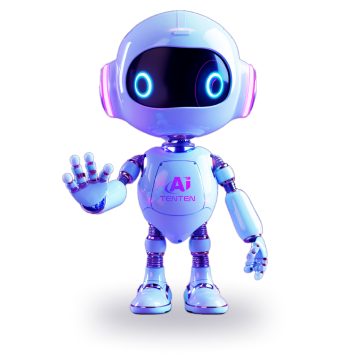







Cảm ơn bạn
đã đăng ký thành công!
TentenAI sẽ liên hệ trong thời gian sớm nhất.
Có lỗi xảy ra vui lòng thử lại sau!
Tiếp tục khám phá